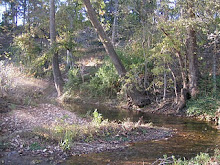"...though not unqualified, a citizen's right to film government officials, including law enforcement officers, in the discharge of their duties in a public space is a basic, vital, and well-established liberty safeguarded by the First Amendment." First Circuit Court of Appeals.
The right to take photographs or video of police in public places was affirmed in an August 26 ruling by the First Circuit Court of Appeals in New England. Just as importantly, the court also said individuals with cameras have the same rights as professional journalists.
The court said Simon Glik was within his First Amendment rights when he made a cell phone video of Boston police arresting a man, and arresting Glik for making the video violated his Fourth Amendment rights.
Walking by Boston Commons October 1, 2007, Glik had seen three police officers arresting a young man and heard a bystander say "You're hurting him. Stop" Concerned about police brutality, Glik then began recording the event. After subduing the young man, police ordered Glik to stop recording. When Glik objected, police arrested him.
Glik was charged with violating the state's wiretap law, disturbing the peace, and aiding in the escape of a prisoner. The City of Boston later dropped the aiding in escape charge, and the municipal court dismissed the disturbing the peace charge and also the wiretap charge because the recording was not secret. Glik then sued the city in federal district court and the case ended up at the court of appeals. There, the city argued that police should not be recorded due to their professional immunity from liability but the court cited extensive case law which said government officials in public places may be recorded.
Regarding the First Amendment rights of citizens who are not professional journalists, the court said: "The proliferation of electronic devices with video-recording capability means that many of our images of current events come from bystanders with a ready cell phone or digital camera rather than a traditional film crew, and news stories are now just as likely to be broken by a blogger at her computer as a reporter at a major newspaper. Such developments make clear why the news-gathering protections of the First Amendment cannot turn on professional credentials or status."
Subscribe to:
Post Comments (Atom)

Mike, Thanks for posting this -- cross posting it :) There is a recent situation where police confiscated a camera and phone for taking pictures at a US Rep. townhall meeting claiming they were not media and therefore could take no pictures. Still seeking more info on the outcome of this situation. Bill
ReplyDelete